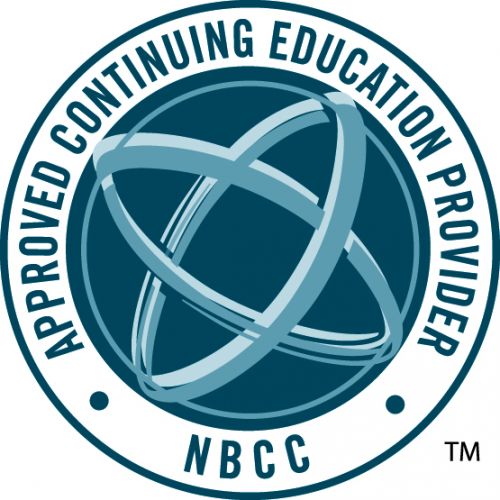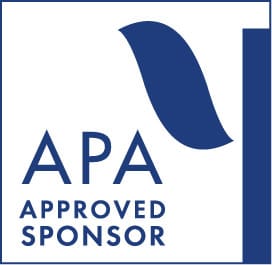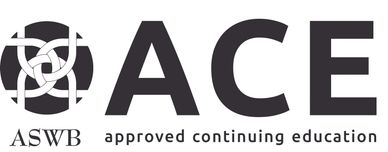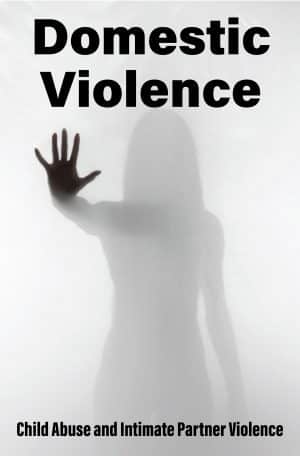Managing Anger & Aggressive Behavior
Jane McGregor, PhD
$39.00 Original price was: $39.00.$19.50Current price is: $19.50.
 Introductory
Introductory
 Online
Online
Course Abstract
Managing Anger & Aggressive Behavior is a 3-hour online continuing education (CE) course that provides strategies for dealing with anger and aggression in clinical practice.
Healthcare professionals in every specialty have had experiences with anger and aggression, sometimes finding themselves the target of their clients’ anger. We are human, and all of us are subject to the full range of human emotions, even as therapists within the context of professional encounters with our clients. While anger is perfectly normal and almost universally experienced and expressed by individuals, it can become highly problematic when it is excessive in frequency and duration and is disproportionate to the event or person who triggered it.
The intent of this course is to address four interrelated topics: (1) understanding anger, (2) managing one’s own anger, (3) managing aggressive behavior from others, and (4) teaching clients to manage problematic anger. We will explore the different ways in which people can express outrage, including the commonly encountered forms of aggression (passive aggression, covert aggression, overt aggression, and outright hostility), and provide strategies for dealing with aggressors. As a foundation, we will also discuss coping strategies for managing our own anger and frustration as we go about our daily lives.
Course #31-16 | 2019 | 53 pages | 20 posttest questions
Learning Objectives
- Identify the fundamental differences between anger and aggression
- Describe how to recognize and respond to the five major types of aggressive
- Provide examples of verbal and non-verbal tactics that aggressive people commonly employ
- List strategies for dealing with anger, aggression, and passive aggression without being aggressive
- Name approaches for effectively dealing with covert and overt aggressors
- Explain techniques to help clients learn to restrain and manage their aggressive impulses
Course Directions
This online course provides instant access to the course materials (PDF download) and CE test. The course is text-based (reading) and the CE test is open-book (you can print the test to mark your answers on it while reading the course document).
Successful completion of this course involves passing an online test (80% required, 3 chances to take) and we ask that you also complete a brief course evaluation.
About the Author(s)
Jane McGregor, PhD : Find out More
Jane McGregor, PhD, who received her doctorate from the London School of Hygiene and Tropical Medicine, was an assistant professor at Nottingham University and a clinical practitioner in the U.K. National Health Service and charitable sector. She currently lectures part-time at the University of Nottingham and is a freelance researcher and author, who co-authored The Sociopath at the Breakfast Table and Coping with Difficult Families and wrote Drink and The City. She is currently working on a new title, Coping with Aggressive Behavior. Dr. McGregor is a trustee for the charity The Society for Research into Empathy, Cruelty, and Sociopathy (SoRECS).
Disclosure
:
Financial: No relevant financial relationships exist.
Nonfinancial: No relevant nonfinancial relationships exist.
CE Information
Counseling

Professional Development Resources (PDR) has been approved by the National Board for Certified Counselors (NBCC) as an Approved Continuing Education Provider, ACEP No. 5590. Programs that do not qualify for NBCC credit are clearly identified. PDR is solely responsible for all aspects of the programs.
Professional Development Resources is CE Broker compliant (#50-1635 - all courses are reported within two business days of completion). Professional Development Resources, Inc. is recognized by the New York State Education Department’s State Board for Mental Health Practitioners as an approved provider of continuing education for licensed mental health counselors (#MHC-0135 - Note: New York counselors will receive 3 continuing education credits for completing this self-study course).
Marriage and Family Therapy

Professional Development Resources is approved by the American Psychological Association (APA) to sponsor continuing education for psychologists. Professional Development Resources maintains responsibility for this program and its content. Professional Development Resources is also approved by the National Board of Certified Counselors (NBCC ACEP #5590); the Association of Social Work Boards (ASWB #1046, ACE Program); the New York State Education Department's State Board for Mental Health Practitioners as an approved provider of continuing education for licensed marriage and family therapists (#MFT-0100 - Note: New York MFTs will receive 3 continuing education credit(s) for completing this self-study course); the Texas Board of Examiners of Marriage and Family Therapists (#114); and is CE Broker compliant (#50-1635 - all courses are reported within two business days of completion).
Psychology

Professional Development Resources is approved by the American Psychological Association (APA) to sponsor continuing education for psychologists. Professional Development Resources maintains responsibility for this program and its content.
Professional Development Resources is CE Broker compliant (#50-1635 - all courses are reported within two business days of completion). Professional Development Resources, Inc. is recognized by the New York State Education Department’s State Board for Psychology as an approved provider of continuing education for licensed psychologists (#PSY-0145).
School Psychology

Professional Development Resources is approved by the American Psychological Association (APA) to sponsor continuing education for psychologists. Professional Development Resources maintains responsibility for this program and its content.
Professional Development Resources is CE Broker compliant (#50-1635 - all courses are reported within two business days of completion). Professional Development Resources, Inc. is recognized by the New York State Education Department’s State Board for Psychology as an approved provider of continuing education for licensed psychologists (#PSY-0145).
Social Work

Professional Development Resources, #1046, is approved as an ACE provider to offer social work continuing education by the Association of Social Work Boards (ASWB) Approved Continuing Education (ACE) program. Regulatory boards are the final authority on courses accepted for continuing education credit. ACE provider approval period: 6/12/2025 - 6/12/2028. Social workers completing this course receive 3 clinical continuing education credits. ACE format: Reading-based asynchronous distance learning.
Professional Development Resources is CE Broker compliant (#50-1635 - all courses are reported within two business days of completion). Professional Development Resources, Inc. is recognized by the New York State Education Department's State Board for Social Work as an approved provider of continuing education for licensed social workers (#SW-0664 - Note: New York social workers will receive 3 continuing education credit(s) for completing this self-study course). Professional Development Resources is also approved by the Texas State Board of Social Worker Examiners (#5678).
Teaching
Professional Development Resources is approved by the American Psychological Association (APA) to sponsor continuing education for psychologists. Professional Development Resources maintains responsibility for all programs and content. Professional Development Resources is also approved by the National Board of Certified Counselors (NBCC ACEP #5590); the Association of Social Work Boards (ASWB Provider #1046, ACE Program); the Continuing Education Board of the American Speech-Language-Hearing Association (ASHA Provider #AAUM); the American Occupational Therapy Association (AOTA Provider #3159); the Commission on Dietetic Registration (CDR Prior Approval Program); the New York State Education Department’s State Board for Psychology as an approved provider of continuing education for licensed psychologists (#PSY-0145), State Board for Mental Health Practitioners as an approved provider of continuing education for licensed mental health counselors (#MHC-0135) and marriage and family therapists (#MFT-0100), and the State Board for Social Workers as an approved provider of continuing education for licensed social workers (#SW-0664); the Texas Board of Examiners of Marriage and Family Therapists (#114) and State Board of Social Worker Examiners (#5678); and is CE Broker compliant (#50-1635 - all courses are reported within two business days of completion).
Customer Testimonials
The information was valuable adn the course was presented in an easy to follow format.
Excellent - very good information!
Very informative, clearly presented and applicable to therapy.
Great course to take. Applicable test questions and answers. No trick questions or answers. Good information on cause, effect, and techniques to use with many forms of anger, aggression, frustration, rumination, and venting. I like that the course also talked about these issues online and also gave slang used.
Very useful inofrmation for myself and for dealing with, as well as teaching, others.
More Testimonials
Excellent course. Up to date information. Very useful.
This has been by far one of the best courses I have read and answered in comparison to MANY seminars I have attended. It is well written, referenced and supported. Thank you.
This course was very valuable in helping patients. Will keep this in my office and refer to the material to help with planning and working with patients. Page 50 is a treasure and I will copy and use it to talk with patients about their anger, etc.
It was helpful to cover the different types of aggression and possible motives behind them. People are complicated especially when they are upset, angry, mad, frustrated, etc. It was helpful to read about different approaches when dealing with an upset, angry, mad client.
Plethora of information!
Very helpful information for my clients.
This was really interesting. I am a people pleaser and this really helped me in practical ways. I really liked the examples given, for instance, "Let's find a solution that works for BOTH of us. Helpful and useful information!
This course was interesting and useful in practical ways.
Thank you! This course was so much more helpful than I expected. I feel like it helped me more than many of the others that I have recently taken. I believe it has the potential to calm many troubled hearts and minds.
Good information and reminders on anger response and strategies.
Great course. Very helpful and informative.
Well presented. Useful for clients and clinicians.
Excellent information, examples and strategies for recognizing and coping with anger and aggression in others and in oneself. Very respectful and helpful gender differences and explanations for why women often suppress expression of anger. Strategies for coping and setting boundaries were well-reasoned and nonaggressive. Outstanding course for review and new learning and the course provides excellent material to use for teaching these concepts.
This course was provided excellent review of previous learning along w. new information.I benefited from the work. Thanks again!
Good practical tips for use in a variety of settings.
Fantastic course! I would recommend this to anyone.
This is a stellar course. It has been my favorite so far of this renewal period. Some of my favorite things are:The inclusion of covert aggression as a category (with a clear way to distinguish it from passive aggression, the term most people use to refer to covert aggression)The provision of examples for each type of aggression mentionedThe inclusion of the term ruthless compassion (which I think will be most helpful for clients with co-dependency and dependency traits)The inclusion of the term Gaslighting, which is important for providers to understand and be prepared to notice so as to help their client's who are in especially controlling, negativistic, aggressive relationshipsI think the reason this course stands out so much is that it is applicable, contains clear-cut definitions, includes examples for terms and concepts discussed, and provides strategies for addressing identified issues.
I wish I had this course years ago. It really helped me gain insight into the many encounters that I have faced with individuals through the years.Thank you!
Information was informative and insightful.
Another great course. Always learn something new and relevant. Appreciated sections on online issues.
Excellent course, I learned a lot and it provided many useful techniques for dealing with anger. Although my principal job as a school psychologist is evaluating students, not providing counseling, many of the techniques can be incorporated into the recommendations I provide in my reports.
I really enjoyed this reading. It was very thorough, interesting, and helpful.
Some of the scripted phases are ones I will use with my patients and I will use for training in my organization. This has been very helpful. Thank you.
The quotes embedded in the content are great. I will keep these in mind when working with others.
Well organized, comprehensive, and useful examples.
Thank you for another helpful and timely course as we navigate these challenging times... when we observe and work with people overwhelmed with fears, stressors and strong emotional responses, including anger & aggressive behaviors.
Welll-written and useful course. Well worth my time. Thanks.
This was an excellent course and I expect to use this information learned from this course frequently in helping clients, as well as in my own life.
This completely helped with identifying and making solutions to anger issues. I can definitely use these methods in controlling anger issues along with identifying anger issues with other people, and how to navigate through it. This course is a great tool in the real world when dealing with everyone.
I already know a lot about the area as I am a published author in it. The author presented the material very well.
- ADHD
- Adults
- Alternative Medicine
- Alzheimers & Aging
- Animal-Assisted Therapy
- Autism
- Behavior Therapy
- Child & Adolescent
- Closeout
- Communication
- Couples-Family-Parenting
- Cultural Diversity
- Depression & Anxiety
- Domestic Violence
- Ethics & Risk Management
- Gender Identity
- HIV-AIDS
- Human Trafficking
- Laws & Rules
- Medical Errors
- Mindfulness & Yoga
- National Psychologist
- Nutrition & Fitness
- Psychotherapy
- Sexuality
- Substance Abuse
- Suicide
- Supervision
- Trauma & PTSD
Related products

Operational Psychology: Legal and Ethical Considerations
 Learning Level : Intermediate
Learning Level : Intermediate
 Online
Online

Ethics and Law in Florida Psychology
 Learning Level : Intermediate
Learning Level : Intermediate
 Online
Online

